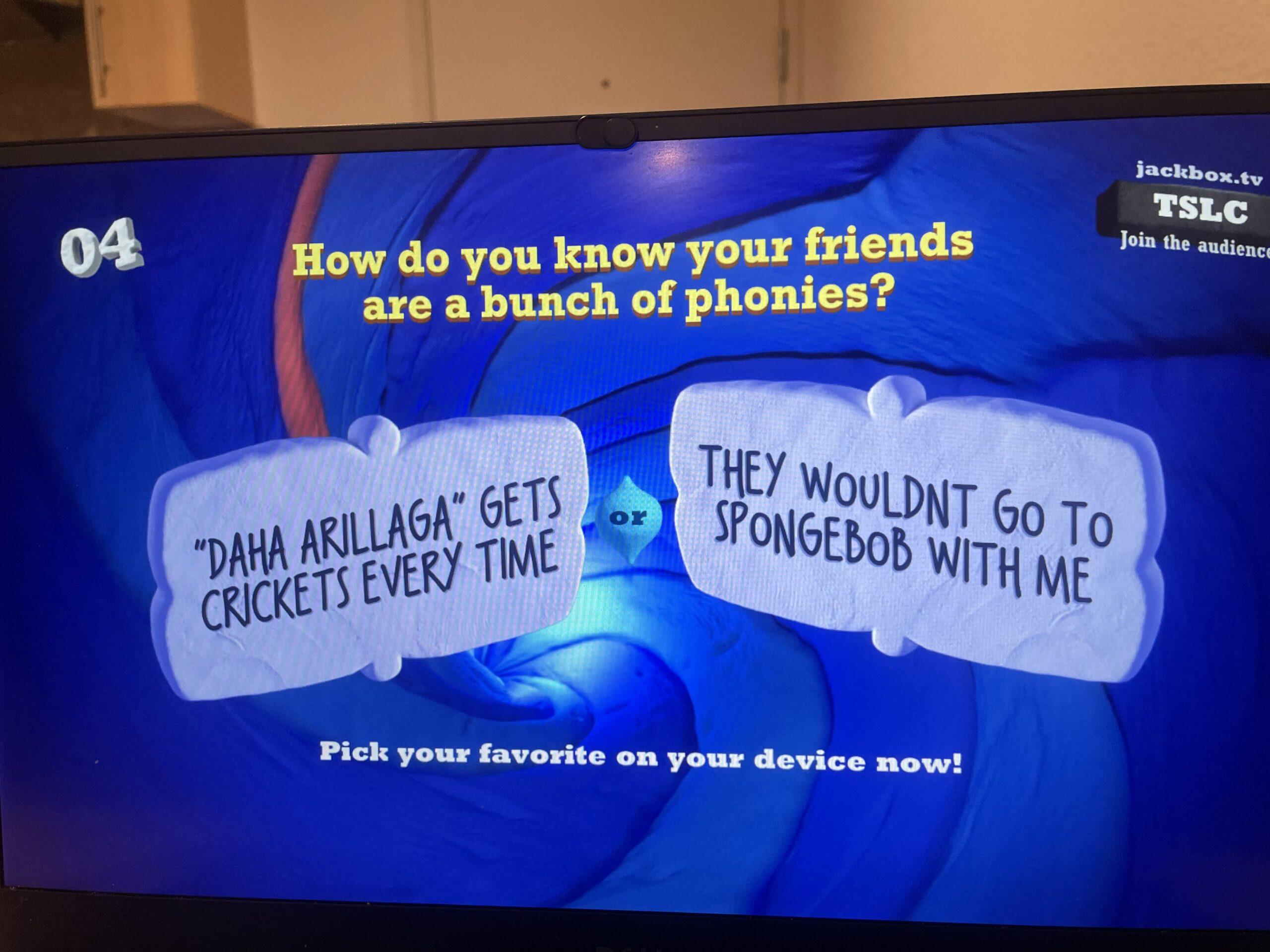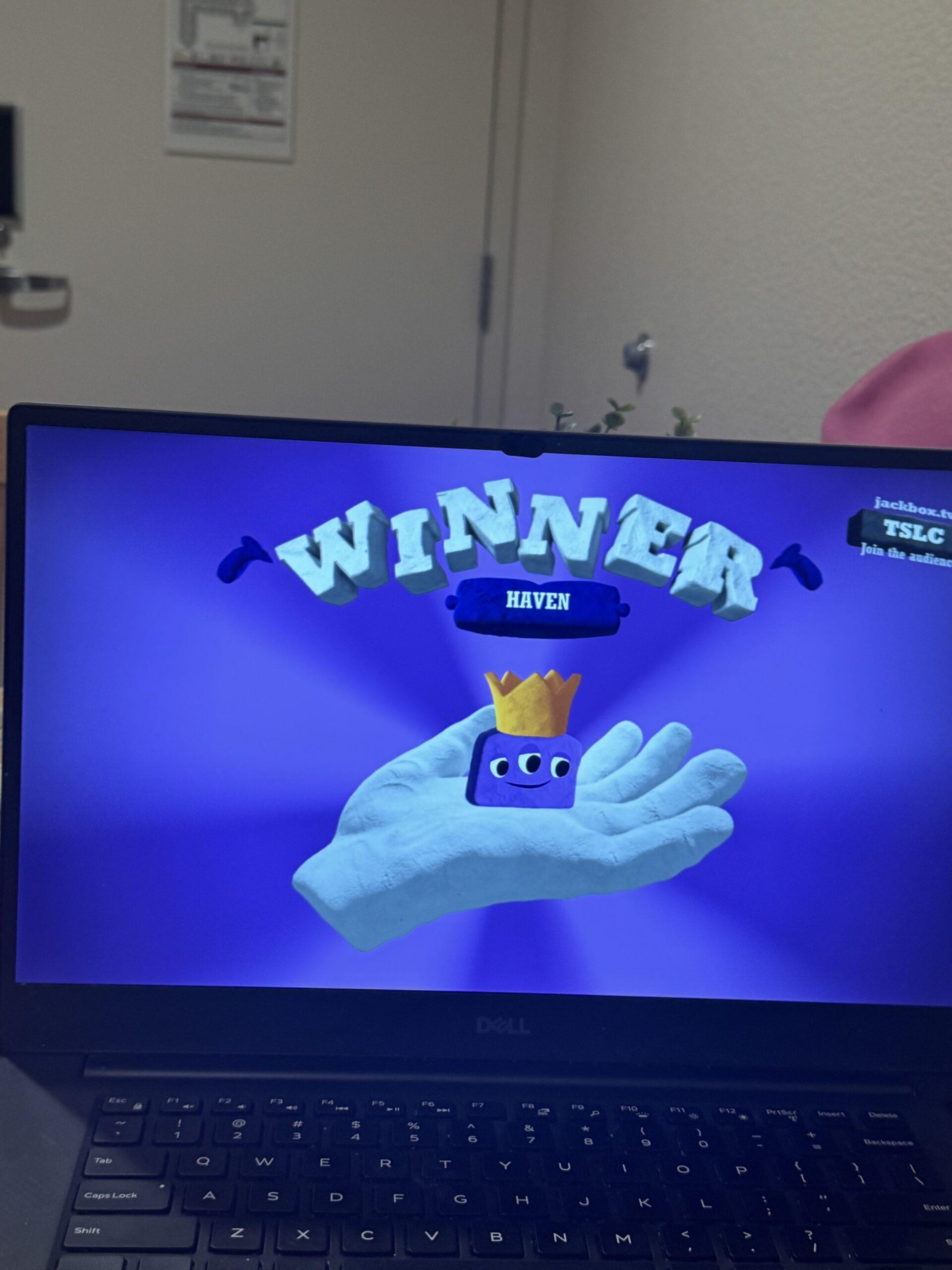For this critical play, I focused on the party game Quiplash, a minigame from the Jackbox Party Pack series of games. Released by game studio Jackbox Games, Quiplash is just one in a series of extremely popular party games along with the likes of Trivia Murder Party, Fibbage, and Drawful. All games in the packs require one main screen for viewing and individual players to connect on their own devices to participate. Quiplash uses its highly group-specific judgment mechanics to create a level of judgment both on the people voting for a prompt and writing for it, creates a group dynamic that prioritizes in-game inside jokes and tailoring submissions to your specific group, generating an environment where losing feels just as fun as winning.
In Quiplash, the main mechanic of responding to prompts and voting on the best response functions is what makes the game a judgment game. However, Rather than knowing the author of each response at the time of voting, it is revealed only after the votes are. In this way, a second layer of judgment frequently takes place, in which players can guess on who wrote each response before voting. This is especially common in games with close friends, as they are better able to predict other players responses.
Above image shows an example of the inside jokes generated during the game. Notably, everyone playing knew exactly who had submitted each response to much entertainment, despite the anonymized mechanic of responses before voting.
This second layer of judgment comes with color commentary throughout the gameplay, keeping everyone invested and inspiring the enjoyment and aesthetic of fellowship and discovery even more. However, sometimes some of the submissions in a round will be not from one of the fellow players but instead from a bot. In this way, there’s almost an element of searching out the “impostor” as in some hidden role games, adding even another layer to the aspect of judgment.
Furthermore, gameplay is segmented into three sections, during each of which players get another chance to answer prompts after the previous round has concluded. Players can change their style and approach from round to round, potentially allowing a comeback win. This allows players to build on especially funny responses from the first round, for example, in the second round, creating microcosms of inside jokes and callbacks throughout a single game. This plays into the judgment mechanic of the game, as the criteria for best response can subtly shift throughout the game as the players organically create it themselves. What one is judging changes overtime, and much of the joy of playing with friends is knowing and executing on what you know they will enjoy or what will make them laugh. Finally, the “Quiplash” feature, in which you earn extra points if your response is voted for unanimously, is entertaining without any negative competition or resentment. This is in part due to the anonymous voting, so players know they did not lose due to anything about them necessarily but rather solely their response. I also found in my experience that this mechanic made even losing enjoyable, as the entire group is able to laugh along to the winning response.
A screen of my win after I “quiplashed” on a round.
In conclusion, Quiplash offers a unique and engaging experience centered around judgment and group dynamics. Its mechanics foster a tightly linked environment of inside jokes, callbacks, and multilayered judgment, where even losing feels enjoyable due to the fellowship and camaraderie gained throughout the process.




